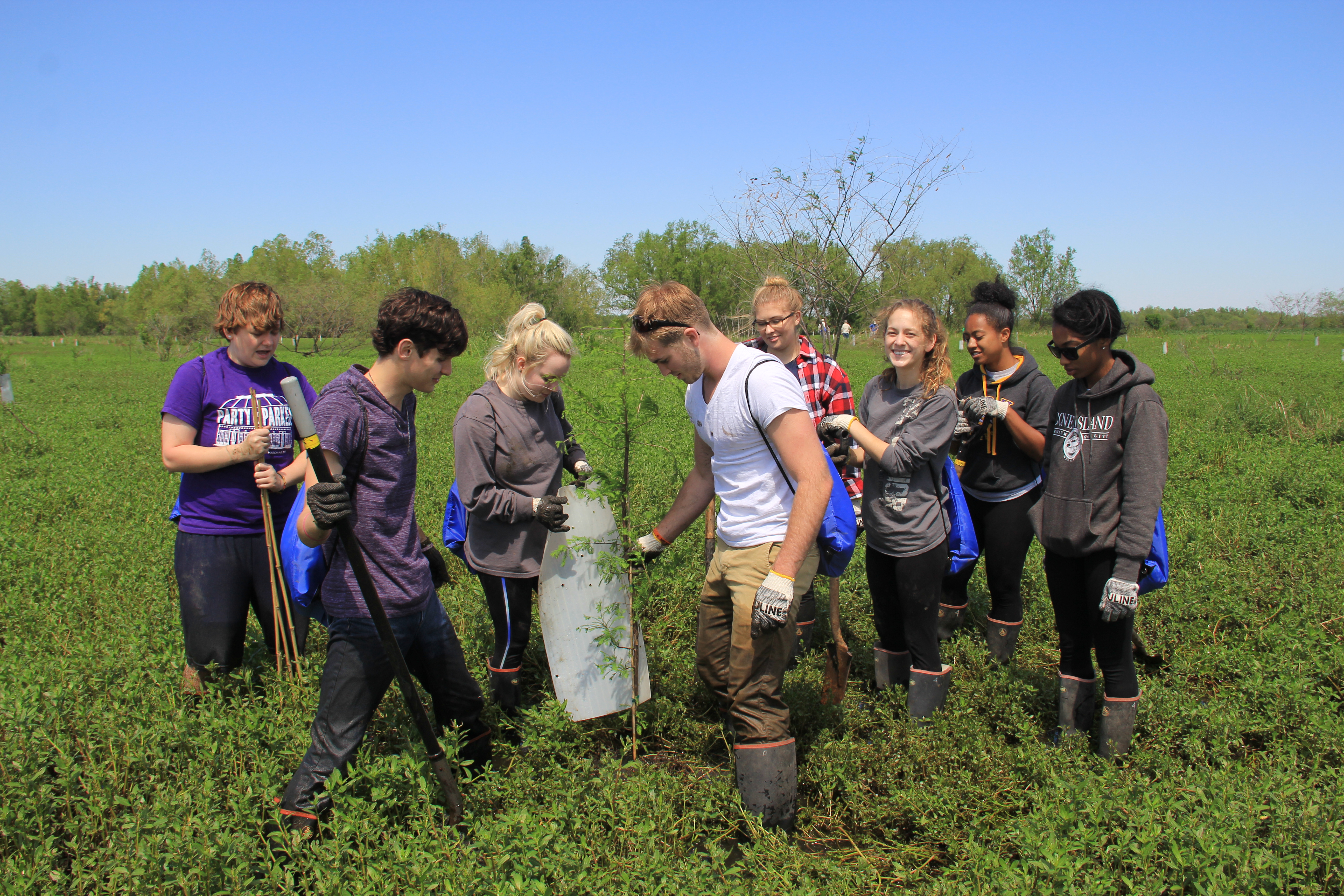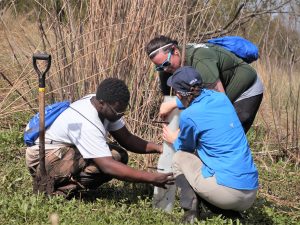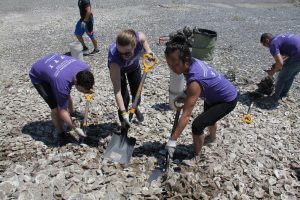The Coalition to Restore Coastal Louisiana receives environmental offsets from the Ecological Society of America
NEW ORLEANS, LA. — The Ecological Society of America (ESA) will donate over $17,500 to the Coalition to Restore Coastal Louisiana (CRCL) to offset the environmental costs of the Society’s 103rd Annual Meeting, held this year in New Orleans, LA. More than 3,500 attendees convene from across the globe this week to impart, discuss, and share the latest in essential ecological research and discovery.

Student volunteers participate in a CRCL fall tree planting. Since 2000, CRCL’s Habitat Restoration Program has planted more than four million native plants throughout the Louisiana coast. Credit: CRCL
With so many in attendance, the environmental footprint left behind is not small, nor is it overlooked by ESA members. The energy required to transport, house, and host these environmentally-minded participants exacts a toll on the very ecosystems that conference participants have come together to discuss.

CRCL Restorations Programs Director Dr. Deb Abibou and volunteers plant CRCL’s 30,000th tree. The tree marked end of CRCL’s third “10,000 Trees for Louisiana” campaign. Credit: CRCL
Caz Taylor, a spatial ecologist at Tulane University and the meeting’s Local Host, stated that the wetland loss in the Gulf Coast region is of huge concern. She emphasized that the destruction of wetlands, which constitutes 40-45 percent of coastal wetlands in the lower continental United States, is “already having enormous environmental and economic consequences, and I think it is one of the most serious environmental issues facing the US.”
By the year 2040, it is estimated that one-third of coastal wetlands will be destroyed by urban development. CRCL uses a multifaceted restoration, outreach, and advocacy approach to achieve its mission of driving bold, science-based action to rebuild coastal Louisiana.
“Here in Louisiana we are losing wetlands at an incredible rate—one football field every 100 minutes and New Orleans is inching closer to the Gulf of Mexico every day,” said CRCL Executive Director Kimberly Davis Reyher. “We are thankful for ESA’s commitment to give back to Louisiana’s coast during their annual meeting. Few groups think about offsetting their environmental impact.”
CRCL is a boots-on-the-ground restoration organization that has engaged more than 13,000 volunteers through its Habitat Restoration Program. Volunteers have planted more than 3.5 million native trees and plants throughout coastal Louisiana. CRCL also administers the state’s only Oyster Shell Recycling Program which collects oyster shells from participating New Orleans restaurants and uses them to build living shoreline oyster reefs. These reefs encourage oyster settlement, provide fish and wildlife habitat and most importantly act as a breakwall to stabilize the Louisiana coastline. CRCL is also engaging the local fishing industry in its restoration work. Louisiana produces 30 percent of the fish consumed in the US.

CRCL Volunteers bagging Oyster Shells in Buras, Louisiana. The bagged shell is used to build living shorelines to rebuild oyster habitat and protect the coast from erosion and store surge. Credit: CRCL
As the oldest statewide coastal restoration organization in Louisiana, CRCL also advocates for coastal policy at the local, state and national levels and works to promote Louisiana’s Coastal Master Plan, which is the state’s blueprint for restoring its coast. This 50-year plan calls for the construction of over a hundred projects including hydrologic restoration, marsh creation, and sediment diversions.
Community and science-based restoration efforts are at the core of the work accomplished by the Coalition to Restore Coastal Louisiana. These are values mirrored by the Ecological Society of America and its members. This funding will allow the CRCL to further its commitment to coastal restoration.